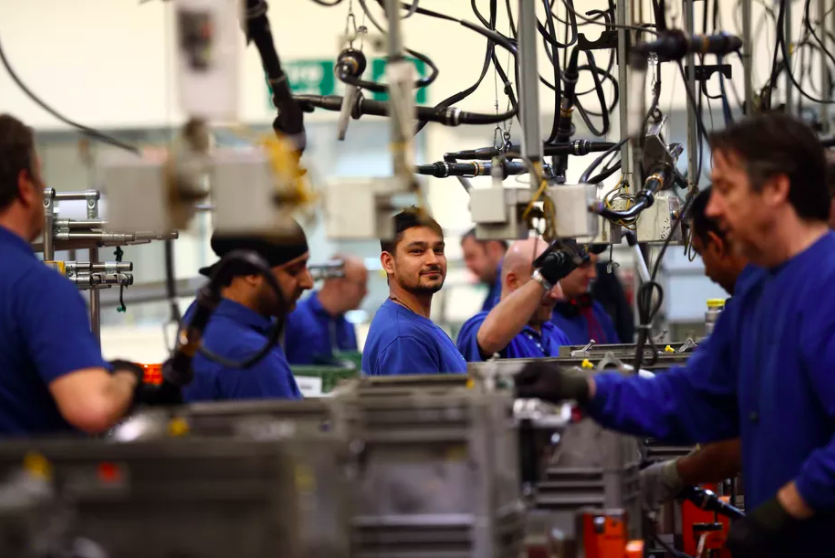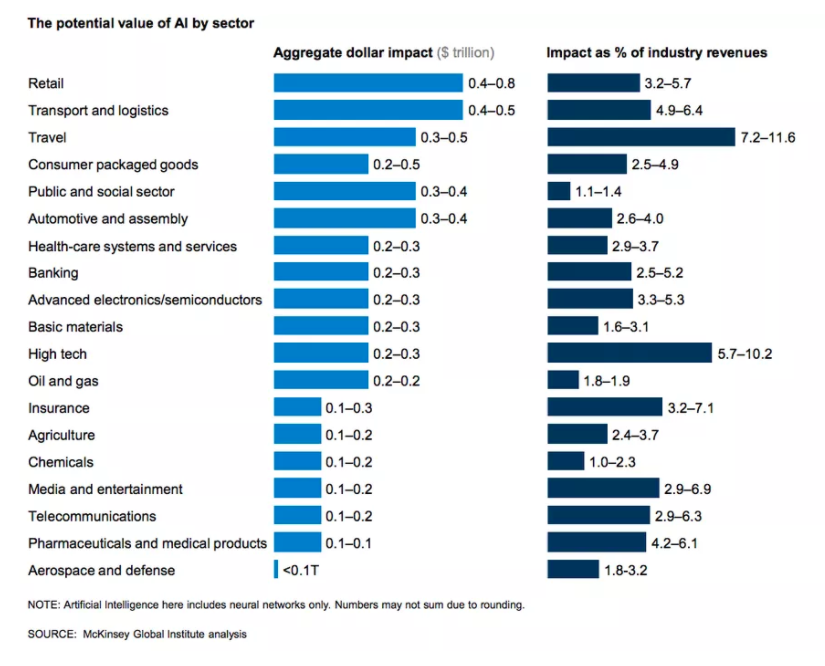
This article is produced by NetEase Smart Studio (public number smartman 163). Focus on AI and read the next big era!
NEW YORK--(BUSINESS WIRE)--April 22, 2010--McKinsey Global Institute's latest artificial intelligence research focuses on how AI influences business. The study analyzed 400 use cases - from airline avoidance cancellations to online retailer-recommendations. - across 19 industries.
Overall, McKinsey predicts that artificial intelligence may eventually create an annual economic value of 3.5 trillion to 5.8 trillion US dollars in these industries - a very wide range, there is no timetable for this forecast.
In general, once AI is further integrated into commerce, it is likely to promote growth. The report shows that in 69% of the McKinsey study, "deep neural networks can be used to improve the performance offered by other analytical technologies." However, at least for the current line of business, this is not a 10-fold change. In the 19 industries where the McKinsey report focuses, it estimates that the impact of AI on annual income is between 1% and 12%.
The report focuses on how artificial intelligence adds value in industries that provide existing products and services, rather than inventing new businesses—for example, how auto companies can better manufacture cars that are already in production, rather than launching something like autopilot. A new kind of artificial intelligence business like a car.
In business functions, artificial intelligence may have the greatest impact on marketing, sales, supply chain management, and manufacturing. For example, artificial intelligence can improve the personalized recommendation of e-commerce companies, or predict traffic patterns to reduce freight costs.
According to the report, in the industry analyzed by McKinsey, the industry where artificial intelligence creates the greatest value (as a percentage of total revenue) is tourism, and AI may have an impact of 7% to 12% of the annual revenue of the tourism industry.
Why is the tourism industry? Michael Chui, a partner with the McKinsey Global Institute and the lead author of the report, said that travel companies carry out complex marketing, sales, and operations, and these areas are, in McKinsey's view, where artificial intelligence can create the greatest value.
According to McKinsey's predictions, other industries that are heavily influenced by AI are relatively high-tech industries (usually defined as software, networking, and hardware companies), transportation and logistics industries, and the pharmaceutical industry. It is expected that AI will have less impact on the public and social sectors, oil and gas, and chemical products.

Most companies have not applied artificial intelligence. McKinsey cited its findings from last year's research. "Even in companies with AI awareness, only about 20% of companies use one or more technologies in their core business processes or scale." The key hurdles are: Acquiring a large amount of training data , legislative threats, and potential data and algorithmic biases. (Selected from: recode Author: Shirin Ghaffary compilation: NEW YORK intelligent participation: nariiy)
Focus on Netease smart public number (smartman163), for you to interpret the big events in the AI ​​field, new ideas and new applications.
Laptop With Touch Screen,2-In-1 Laptop,Laptop For Education,2 In1 Windows Tablet
C&Q Technology (Guangzhou) Co.,Ltd. , https://www.gzcqteq.com